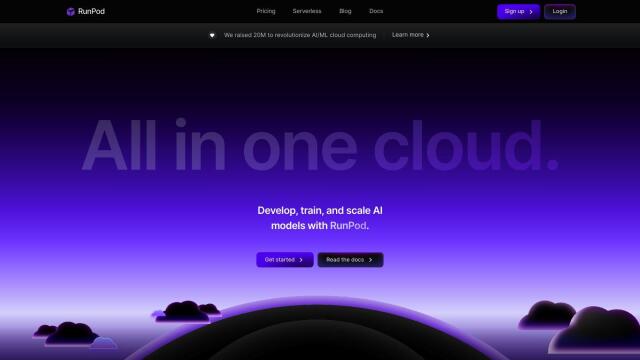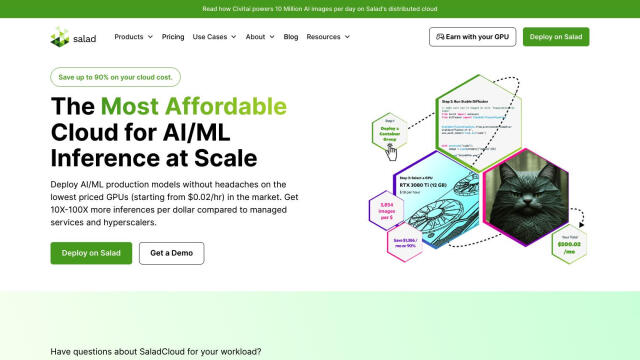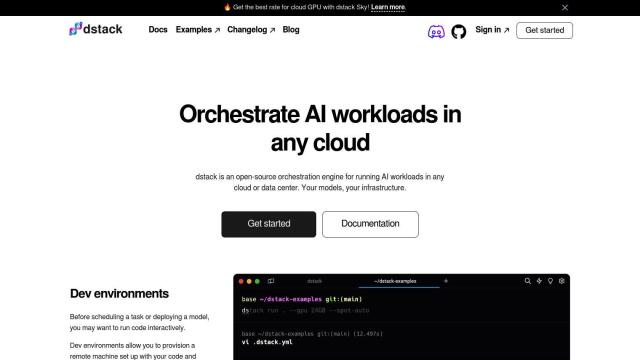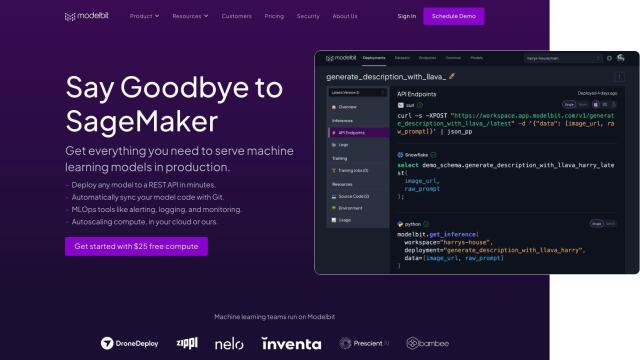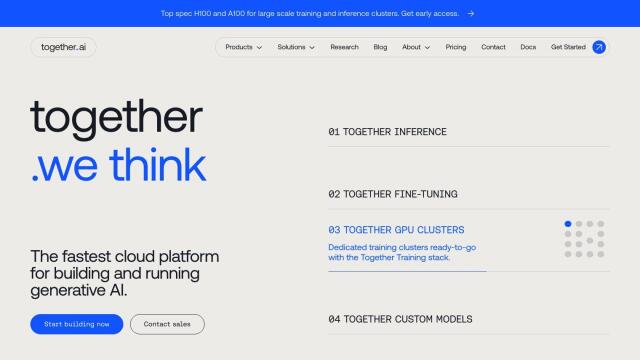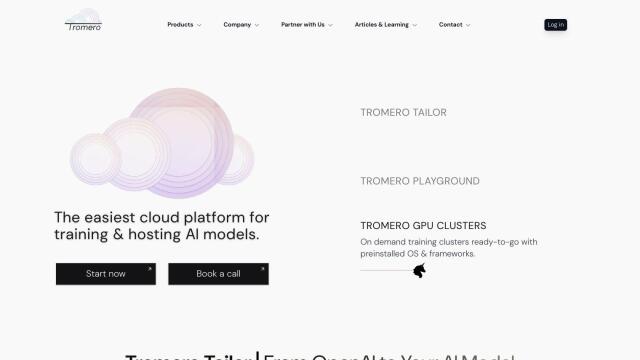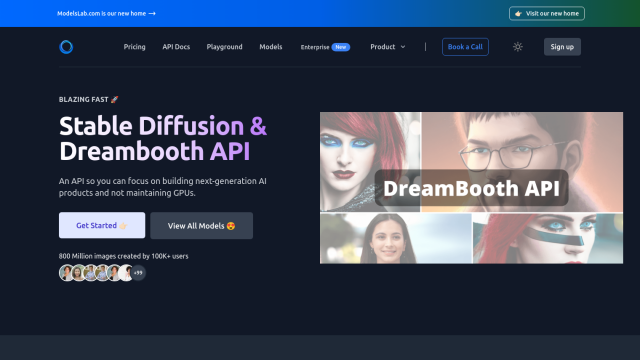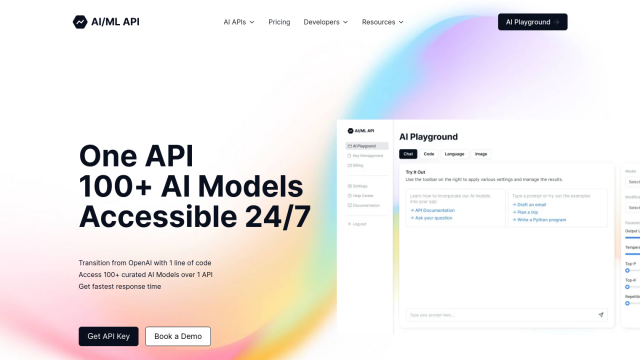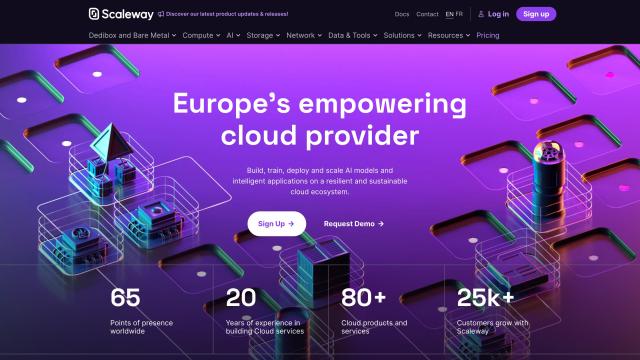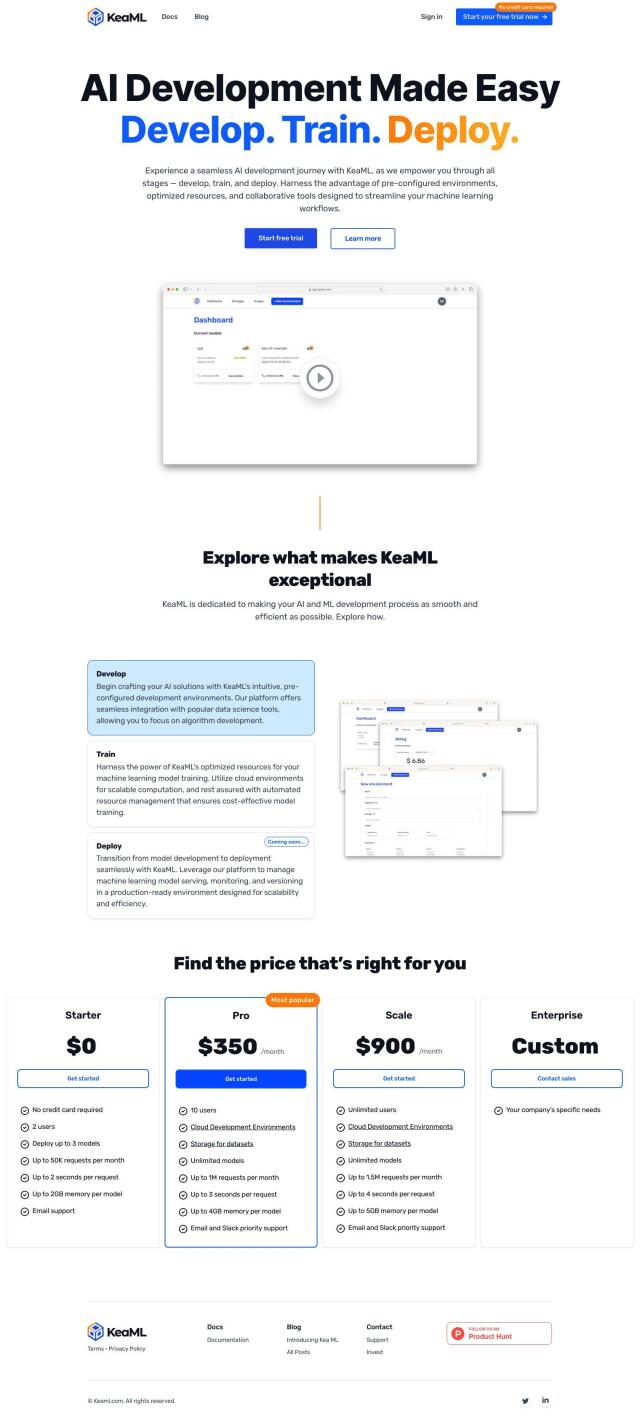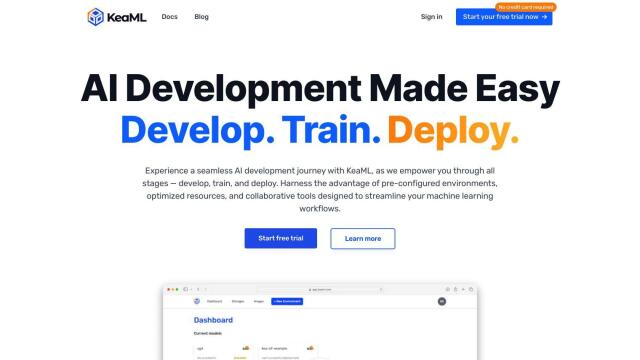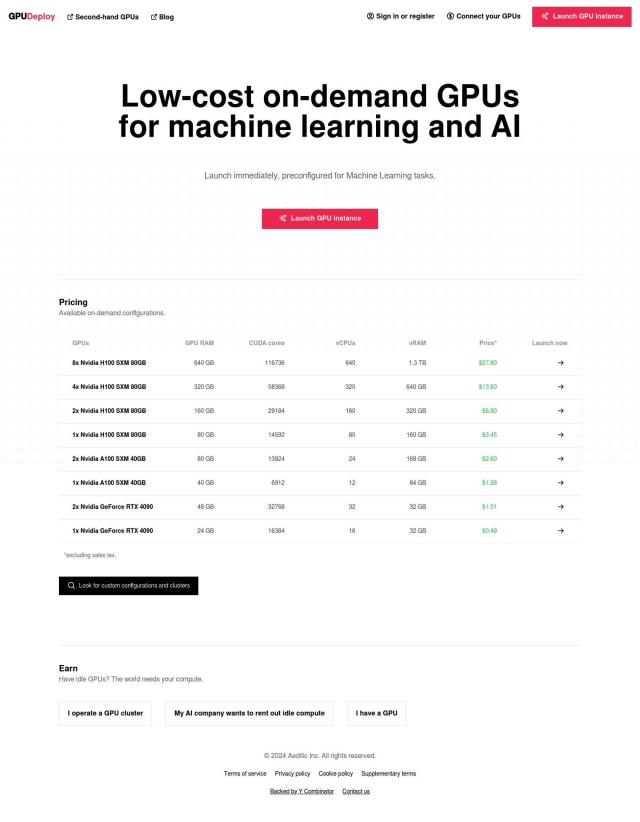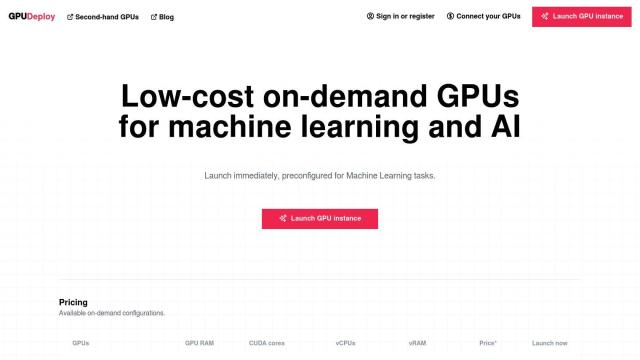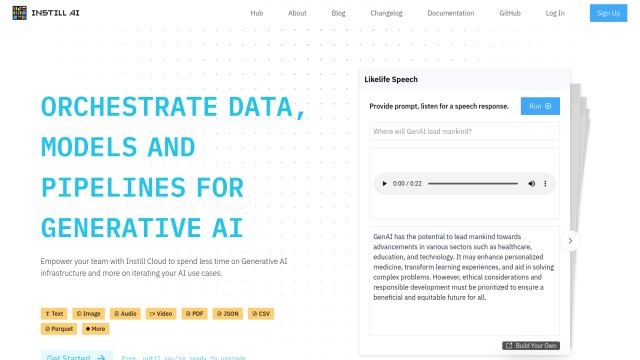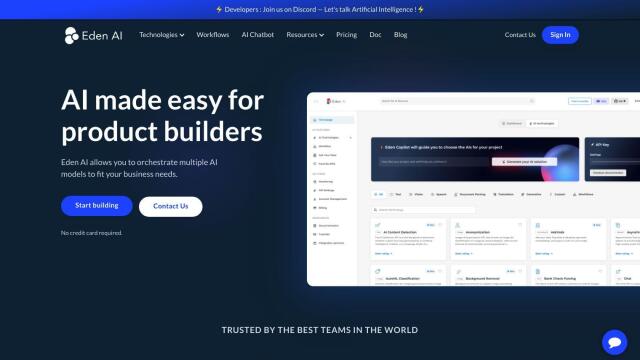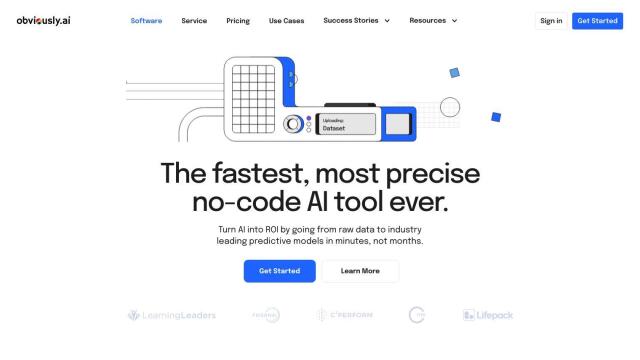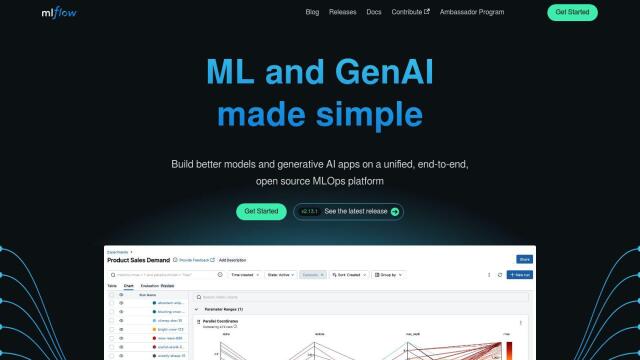
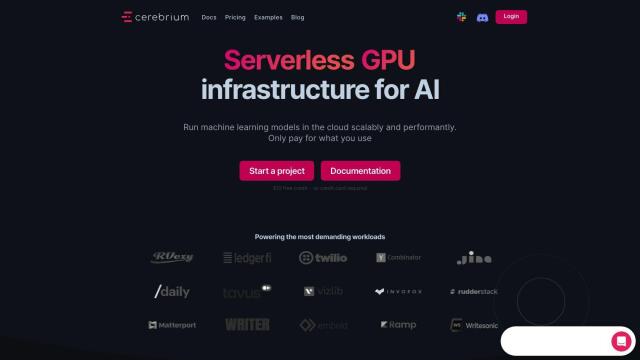
Cerebrium
If you're looking for another RunPod alternative, Cerebrium is worth a look. It offers a serverless GPU foundation for training and deploying machine learning models with pay-per-use pricing that can be a fraction of what's possible with traditional methods. Cerebrium also offers GPU variety, infrastructure as code, volume storage, hot reload and real-time logging and monitoring. It also supports automated scaling and is designed to be easy to use, so it's a good option for AI model development and deployment that's flexible and efficient.


Anyscale
Another good option is Anyscale, a service for building, deploying and scaling AI applications. It includes workload scheduling with queues, cloud flexibility, smart instance management and heterogeneous node control. Anyscale is based on the open-source Ray framework, so it can accommodate a variety of AI models, and it can cut costs with spot instances. It also comes with native integrations with popular IDEs, persisted storage and Git integration, so it's a good option for managing AI workloads at large scale.

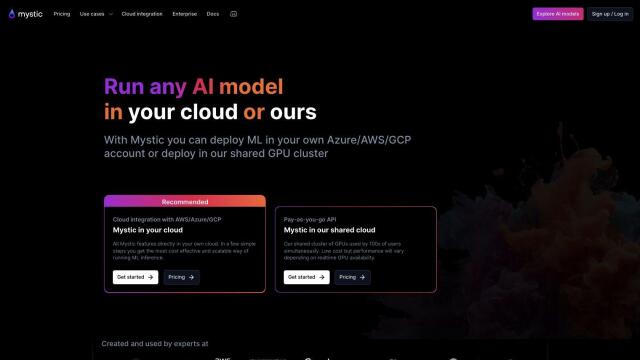
Mystic
Mystic is another good alternative, with serverless GPU inference and a scalable, cost-effective architecture. It integrates directly with AWS, Azure and GCP, supports multiple inference engines and can automatically scale based on API calls. Mystic's managed Kubernetes environment and open-source Python library let you deploy and manage AI models with a focus on ease of use and cost optimization.

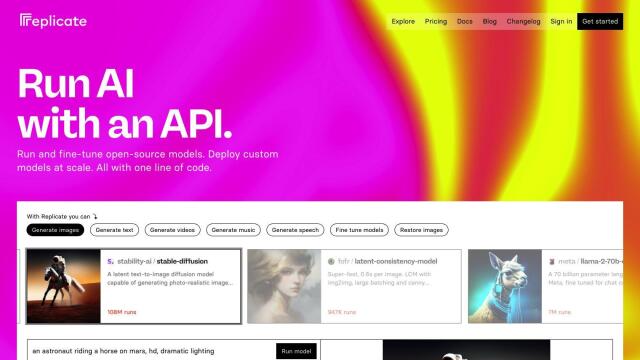
Replicate
If you want something even more streamlined, check out Replicate. This API-based service is designed to be easy to use and easy to integrate, letting developers run and scale open-source machine learning models with a few clicks. Replicate offers a library of pre-trained models and features like one-line deployment, automatic scaling and logging and monitoring. Its pricing is based on hardware usage, so it's a good option for developers who need to add AI abilities but don't want to bother with the hassle of running their own infrastructure.

